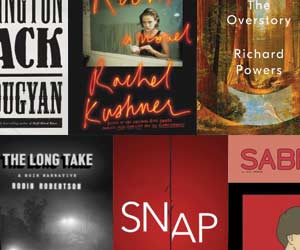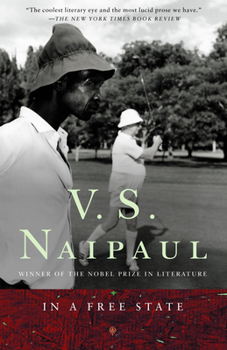In a Free State
Select Format
Select Condition 
Book Overview
From the Nobel Prize-winning author comes a riveting tour de force that examines emigration, dislocation, and dread. "The coolest literary eye and the most lucid prose we have." --The New York Times Book Review
No writer has rendered our boundariless, post-colonial world more acutely or prophetically than V. S. Naipaul, or given its upheavals such a hauntingly human face. In the beginning it is just a car trip through...
Customer Reviews
Freedom?
Africans in control
"One out of Many"
"My life spoil"
a marvelous collection of post-clonial stories
In a Free State Mentions in Our Blog

The Man Booker Prize is one of the most prestigious awards for literary fiction written in English, and the list of winners over the last 50 years includes Ian McEwan, Margaret Atwood, Yann Martel, and Salman Rushdie, so the 2018 prize announcement is big! (Also, the shortlist has six brilliant and diverse novels you’ll want to read regardless of who wins.)




